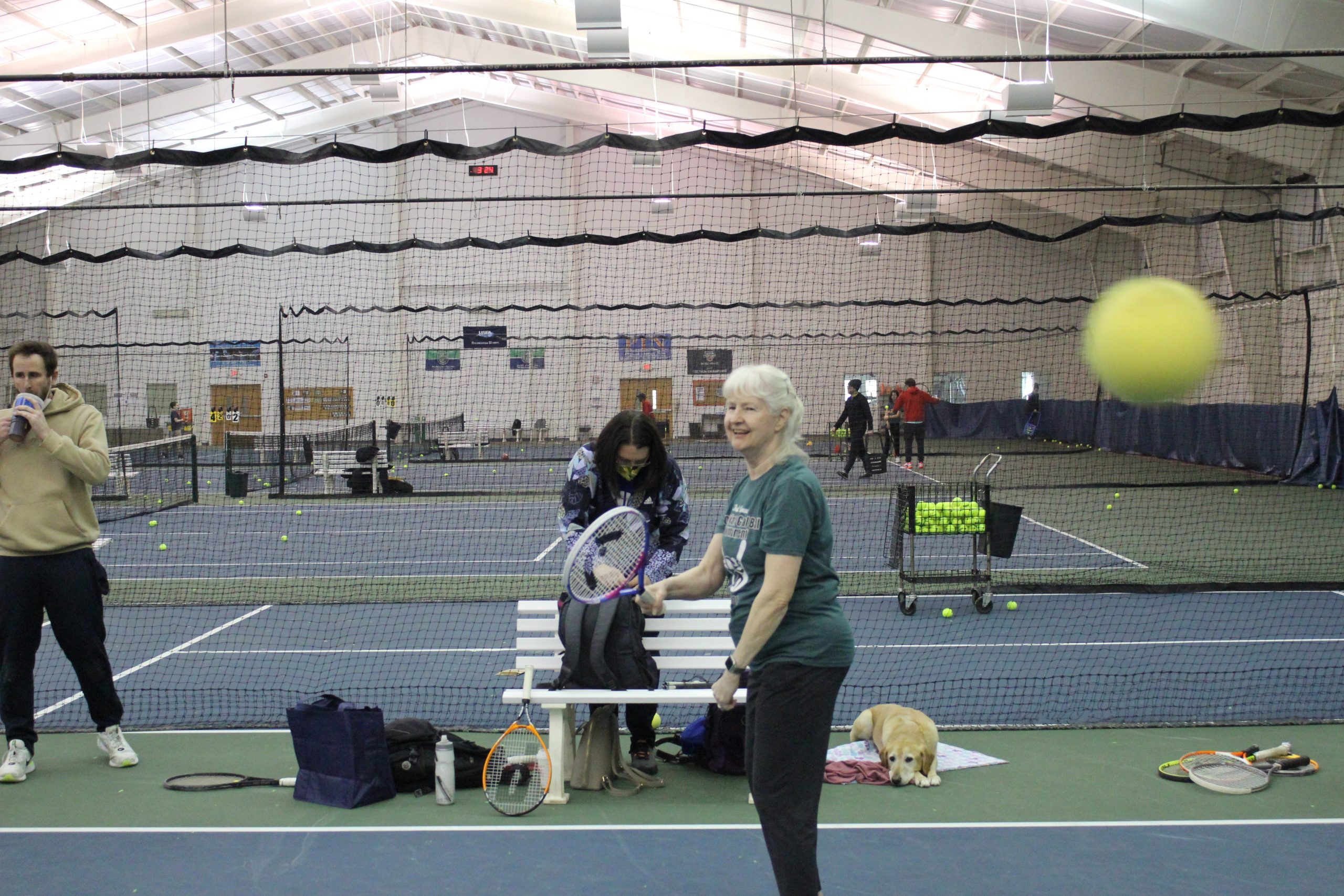For many tennis players, the key to improving performance is enhancing their hand-eye coordination. For blind or visually impaired athletes, however, it’s not hand-eye but hand-ear coordination that’s most important.
A research study led by Jennifer K. Roth, PhD, professor of psychology at Carlow University, has examined how blind or visually impaired athletes react to different sounds emitted by specialized tennis balls, and the study’s findings point to a 40 percent improvement by utilizing certain sounds for the balls. This project started in response to a request from the International Blind Tennis Association to develop a better ball for their athletes.
“The current standard ball uses a mechanical rattle, like a baby rattle inside a ball, that is difficult for profoundly blind or blindfolded players to track, and impossible to find once the ball stops moving and becomes silent,” said Dr. Roth, adding that players who are profoundly blind need assistance in retrieving the ball once the point ends. “Engineering an electronic sound ball allows us to optimize the sound and add a continuous sound that allows players to find the ball more easily during a point, and to pick up their own ball once the point ends.”
This research project was conducted alongside the work of the United States Blind Tennis Association (USBTA) founded and led by Dana Squelch Costa, who received her bachelor’s degree from Carlow, and Dr. Roth, who is a co-founder. The rest of the researchers include Stephan Roth, Dr. Roth’s brother, Cristen Rose and Marquelle Wagle, who were Carlow undergrads when the research began and are now alumni, and members of the Highland Park Tennis Club (HPTC), Bob Gibbs, Kai Liu and Isabella Liu-Lopez.
Dr. Roth says that the study used principles of cognitive neuroscience to optimize a sound for what is called “sound source localization.” Simply put, that means discovering which sound is best for visually impaired people to locate.
“I tested a prototype of this ball with players and coaches in the summer of 2022 at well-established clubs throughout Ireland, Northern Ireland, and England this past summer,” Dr. Roth said. “We have submitted a full patent application for the new engineered ball.”
Because background noise can be a factor influencing how someone responds to sound, the project experimented with two different locations: an outdoor court in Highland Park, and the St. Joseph gymnasium on the Carlow campus.
“In the experiment, using a giant protractor, we measured the difference in angle between where each sound originated and angle where the person actually pointed,” explained Dr. Roth. “When pointing at the standard rattle ball, participants were off by nine degrees at a 30-foot distance. They were off by about four degrees for our best, alternative sound.”
While this research may have applications for other sports, Dr. Roth’s focus on helping others enjoy a sport she has grown to love is the primary focus.
“I aged out of my primary sport,” she said with a laugh. “One day I was walking past the courts in Highland Park and thought ‘Old people play tennis. I can pick up this sport!’” Those courts in Highland Park are operated by the Highland Park Tennis Club, a local non-profit group, which Dr. Roth describes as a “diversity, equity, and inclusion group with a tennis problem.”
“It’s the most effective community group I have witnessed in Pittsburgh to bring together people of every age, race, ethnicity, religion, income level, who form important friendships, collaborations, and accomplish great work, within and beyond tennis,” she said. “This is the reason I got involved to the point of joining their Board. The USBTA started with a group of HPTC players.”
The USBTA’s mission is to spread blind and visually impaired tennis to and throughout the U.S. and co-hosted an inaugural international conference and tournament with the United States Tennis Association at their National Tennis Center in Orlando, FL, in February 2023 and will likely co-host another conference and tournament. The USBTA also demonstrated blind tennis on court at the U.S. Open in September 2023.
